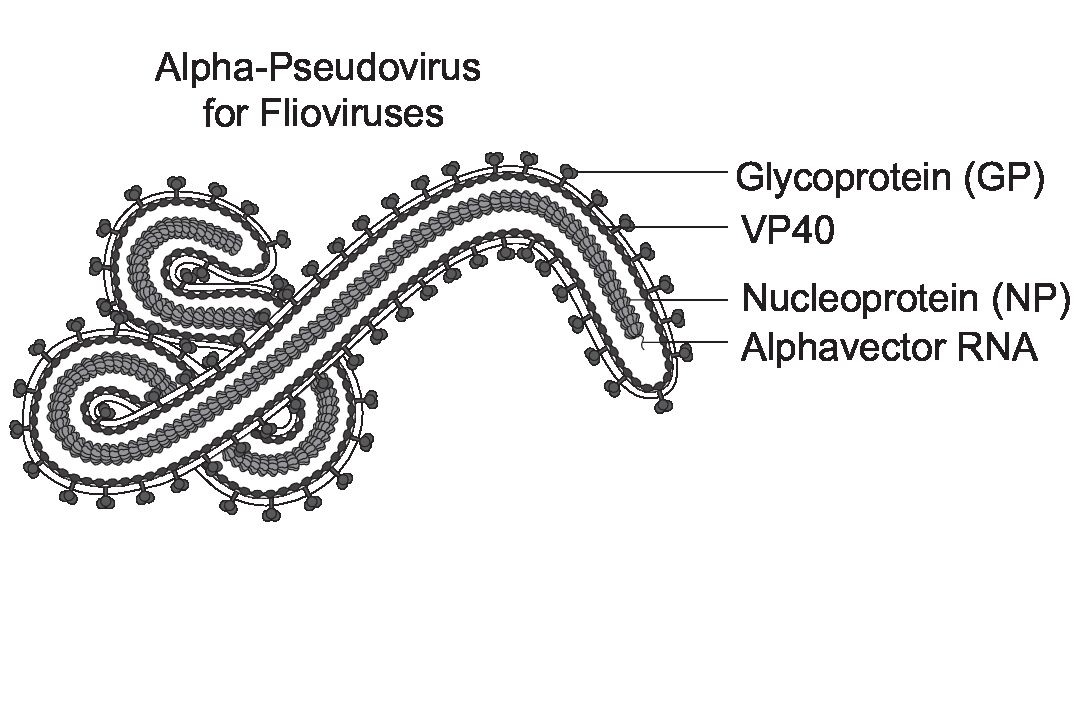Product Description
Product Description
Flaviviridae Envelope Protein Pseudotyped Lentivirus
Flaviviruses include Dengue and Zika viruses. Dengue virus (DENV) Envelope Protein pseudotyped lentiviruses based on NCBI reference sequence EU848545.1. Zika virus (ZIKV) envelope protein pseudotyped lentiviruses based on NCBI reference sequence KY989511.1.
Applications:
- Dengue and Zika pseudovirus transduction of target cells for viral entry and functional studies
- Anti-Dengue and Anti-Zika drug screening
- Anti-Dengue and Anti-Zika neutralizing antibody screening
We have developed several pre-assembled Dengue and Zika envelope protein pseudotyped lentiviral particles that are available for your initial testing. These pseudoviruses are BSL-2 safe and ready to use for studying viral entry. Additionally, we help our customers to assemble custom Dengue virus (DENV) and Zika virus (ZIKV) envelope protein pseudotyped lentiviruses at any scale. These particles carry reporters that can be used for antiviral drug screening or the quantification of neutralizing antibodies. Customers can provide us with the reporter construct of their choice, and we will assemble particles within a week. Please contact us by email: info@virongy.com
To enhance your pseudovirus entry, ask about receiving a free sample of our propriety Infectin that can significantly promote productive viral infection in a variety of host cells, enhancing viral infection rates by 3 to 20-fold.
Background:
Flaviviridae is a family of RNA viruses transmitted by arthropods, such as mosquitoes and ticks. They are responsible for various human and animal diseases, including Dengue, Zika, Yellow Fever, and West Nile Fever. Flaviviruses are single-stranded positive-sense RNA viruses that produce one polyprotein that is processed into 10 individual viral proteins. Mature virions consist of three structural proteins, the capsid protein (C), the membrane protein (M), and the envelope protein (E) encoded on the N-terminal of the viral RNA. The seven non-structural (NS) proteins including, NS1, NS2A, NS2B, NS3, NS4A, NS4B, and NS5, are encoded at the C-terminal.
Dengue virus is classified into four serotypes (DENV-1, DENV-2, DENV-3, and DENV-4). The Dengue envelope protein mediates viral entry into human peripheral blood leukocytes, dendritic cells (DCs), and macrophages through receptors such as the human mannose-binding receptor (MR) and DC-SIGN. Zika (ZIKV) virus consists of two major lineages: one includes the African strains, and the other the Asian and American strains. Zika virus has broad cell tropism and has been shown to enter the cells using adhesion factors such as DC-SIGN (Dendritic Cell-Specific Intercellular adhesion molecule-3-Grabbing Non-integrin) and diverse members of the phosphatidylserine receptor family. In mammals, Zika has been shown to replicate primarily in brain tissue including neurons, and astroglial cells.
Example of results:
Zika virus envelope pseudotyped lentiviral particle transduction of HEK293T cells (Left):
HEK293T cells were transduced with ZIKV(Luc) lenti-pseudovirus (with a luciferase reporter). Reporter expression was quantified at 3 days post-transduction (luciferase assay).
Zika virus envelope pseudotyped lentiviral particle transduction of HEK293T cells (Right):
HEK293T cells were transduced with ZIKV(GFP) lenti-pseudovirus (with a GFP reporter). Reporter expression was quantified at 2 days post-transduction (GFP flow cytometry).
 Dengue and Zika pseudoviruses are intended for Research Use Only and are not for diagnostic or therapeutic purposes or use in humans or animals.
Dengue and Zika pseudoviruses are intended for Research Use Only and are not for diagnostic or therapeutic purposes or use in humans or animals.
Documents
Documents
References
References
Related links:
- Saied AA, Nascimento MSL, do Nascimento Rangel AH, Skowron K, Grudlewska-Buda K, Dhama K, Shah J, Abdeen A, El-Mayet FS, Ahmed H, Metwally AA. Transchromosomic bovines-derived broadly neutralizing antibodies as potent biotherapeutics to counter important emerging viral pathogens with a special focus on SARS-CoV-2, MERS-CoV, Ebola, Zika, HIV-1, and influenza A virus. J Med Virol. 2022 Oct;94(10):4599-4610. doi: 10.1002/jmv.27907. Epub 2022 Jun 11. PMID: 35655326; PMCID: PMC9347534.
- Tsai YT, Chang SY, Lee CN, Kao CL. Human TLR3 recognizes dengue virus and modulates viral replication in vitro. Cell Microbiol. 2009 Apr;11(4):604-15. doi: 10.1111/j.1462-5822.2008.01277.x. Epub 2009 Feb 4. PMID: 19134117.








